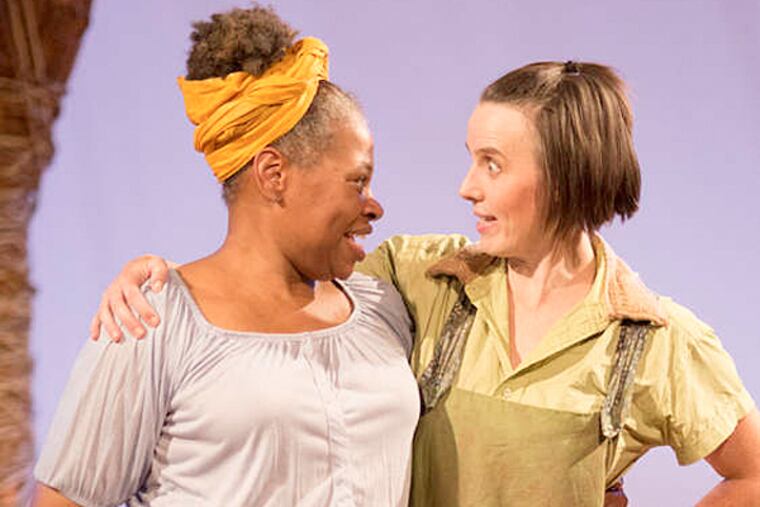Apartheid under 'The Syringa Tree'
A friend's young daughter, visiting from her home in South Africa, once told me, "It's not a matter of if something terrible will happen to you, but when, and how bad will it be?" Such is the legacy of apartheid explored in Pamela Gien's The Syringa Tree. In this Theatre Horizon production, terrible - often very, very terrible - things happen, but also beautiful things, made even more so by the challenges her characters face, both internal and external.

A friend's young daughter, visiting from her home in South Africa, once told me, "It's not a matter of if something terrible will happen to you, but when, and how bad will it be?" Such is the legacy of apartheid explored in Pamela Gien's The Syringa Tree. In this Theatre Horizon production, terrible - often very, very terrible - things happen, but also beautiful things, made even more so by the challenges her characters face, both internal and external.
Gien descends from British South Africans, a group who under apartheid occupied a place slightly to the left of Afrikaners (of mostly Dutch ancestry). This fictionalized account of her upbringing explores relationships between racial and ethnic groups, though tribal associations are mostly ignored. And that's the trouble with Gien's work.
Written, to a large extent, through the eyes of 6-year-old Elizabeth, we see what she sees: an anxious mother, a physician father who must hide his black patients from his white ones, and a house full of black servants. Among them is her beloved nanny, Salamina, whose daughter Moliseng, born in a spare bedroom, must be kept hidden lest the police discover her lack of "papers" and send her away to Soweto.
Director Steve Pacek corrects some of this imbalance by casting two actors in what is often a one-woman show: Kristyn Chouiniere plays the whites (but primarily Elizabeth), and Alice Gatling the blacks (but primarily Salamina). It's a welcome change, not only because the women's many characterizations are so discrete that at times - particularly when events become chaotic - the stage seems to bustle with bodies and activity, but also because these voices already are filtered through the lens of one white South African woman.
Considering the piece's point of view and setting, having both white and black representation onstage gives it a depth and discomfort, along with a visual dichotomy, that are otherwise difficult to achieve.
There is much worth considering in Gien's script. When is one considered a native? When a family reaches its third generation on foreign soil? When one speaks the language? Which language? Is it when a nation achieves economic and political opportunities, integration, and equality for each of its ethnic groups? Has that ever happened?
Like the tree in the title and the one center stage on Thom Weaver's set - trunk reaching the ceiling, sturdy branches holding a rope swing - Elizabeth is a transplant who, nourished by her native earth, thrived in her environment yet remained apart from her surroundings.
THEATER REVIEW
The Syringa Tree
Through Nov. 9 at Centre Theater, 401 DeKalb St., Norristown.
Tickets: $20-$38.
Information: 610-283-2230 or www.TheatreHorizon.org.
EndText